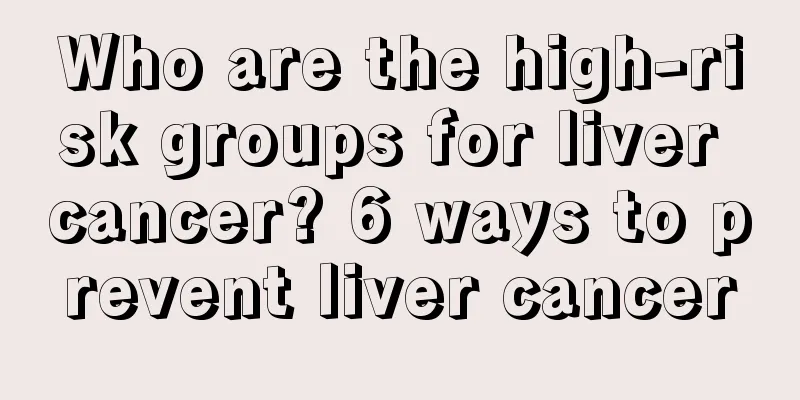What is the function of urinary follicle-stimulating hormone?

|
Urofollicle-stimulating hormone is a type of human hormone obtained from the body of people in menopause. It has many functions for the human body. For example, it can be used to treat female infertility and effectively promote the development of follicles. It can also treat female amenorrhea or ovarian diseases. When faced with this element, people need to understand it in order to better apply it. Below we will introduce in detail the role of urofollicle-stimulating hormone. Urofollitrophin is a high-purity hormone obtained from the urine of menopausal people, which has the effect of promoting the development and maturation of follicles. Sequential administration of urinary follicle-stimulating hormone and human chorionic gonadotropin (HCG) can induce ovulation in patients with polycystic ovary (the LH/FSH values of these patients are elevated and clomiphene therapy is ineffective). 1. It is mainly used in combination with chorionic gonadotropin for anovulatory infertility caused by insufficient secretion of gonadotropin (hypothalamic-pituitary dysfunction or incoordination). It is generally recommended for cases where ovulation induction with clomiphene (CC) or bromocriptine is ineffective. 2. Used in combination with chorionic gonadotropin for the treatment of primary or secondary amenorrhea and ovarian function tests, etc. 3. Used for polycystic ovary syndrome (PCOS), especially for those who have not responded to clomiphene. 4. In assisted reproductive technology, it is often used in combination with clomiphene and chorionic gonadotropin to stimulate superovulation in women with normal ovulation, and multiple oocytes can be obtained at one time. 5. Used in combination with chorionic gonadotropin to treat male hypogonadotropin and infertility and stimulate spermatogenesis. Clinical Application Intramuscular injection, 75-150U per day or 375U every other day, until the total estrogen level in urine is 140μg/24 hours or the 17β-estradiol in plasma is 800pg/ml, then stop taking this product and give 10,000U of chorionic gonadotropin once within 24-48 hours to promote ovulation. Adverse Reactions 1. Common ovarian hyperstimulation syndrome (OHSS). Mild cases may cause nausea, vomiting, discomfort or bloating and pain in the stomach and lower abdomen, and mild enlargement of the ovaries (which can disappear within 7 to 10 days). Moderate and severe cases may cause the ovarian diameter to increase to 10 cm, chest tightness, shortness of breath, decreased urine output, pleural effusion, ascites, rupture and bleeding of follicular cysts, electrolyte imbalance, decreased blood volume, renal failure and even death. 2. The risk of arterial embolism may often increase after taking the drug. 3. In men, feminine breast development may occasionally occur during gonadotropin-chorionic gonadotropin treatment, but this is currently believed to be the effect of chorionic gonadotropin. Contraindications It should not be used in women who are pregnant, have premature menopause, have ovarian or uterine hypoplasia, hypergonadotropic ovarian insufficiency, infertile women with normal ovarian maturity, gynecological bleeding of unknown cause, ovarian cancer, uterine cancer, breast cancer, etc. Note: The above content is for introduction only. Drug use must be carried out in a regular hospital under the guidance of a doctor. |
<<: Why is the morning urine the color of black tea?
>>: What happens if the vaccination is repeated
Recommend
How to prevent uterine cancer during menopause
Endometrial cancer seriously affects women's ...
What are the benefits of soaking your feet in vinegar?
Good health depends on good living and eating hab...
Why do I always feel sleepy in the morning?
When you always feel sleepy in the morning, the f...
Sodium chloride injection works
Sodium chloride injection is a drug with a wide r...
How many types of sweat steaming are there
Steaming is mainly divided into two categories, o...
What are the foods in the diet for advanced lung cancer that can reduce the side effects of radiotherapy and chemotherapy for lung cancer?
Nutritional diet for lung cancer patients. Lung c...
Will renal hamartoma disappear by taking Chinese medicine? Can it be cured?
Renal hamartoma is a benign tumor. Traditional Ch...
How to judge the early and late stages of lung cancer and understand the symptoms of lung cancer at different stages
Lung cancer is a disease caused by malignant tumo...
What are the stages of endometrial cancer
Clinically, endometrial cancer usually spreads ou...
Are there male and female crucian carps?
Crucian carp is a very common edible fish in my c...
What are the common examination methods for prostate cancer
Prostate cancer is a malignant tumor and a diseas...
What to eat to prevent prostate cancer
Male friends must pay attention to preventing the...
What should patients with fibroids pay attention to in their diet
What should patients with fibroids pay attention ...
What are some quick ways to lose weight without taking medicine
How to lose weight quickly without taking medicin...
How to quickly eliminate blood stasis on feet
In daily life, many people will encounter some in...









